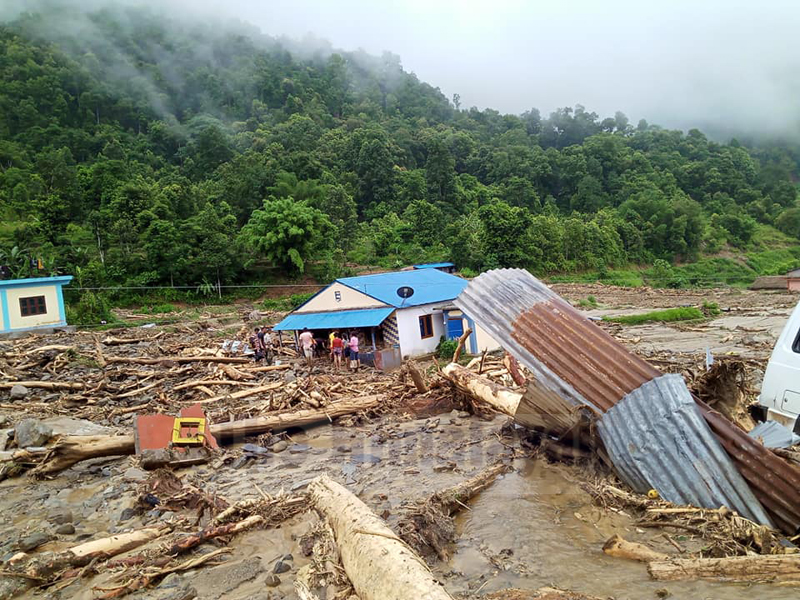‘Monsoon disasters affect millions of children in countries including Nepal’
Kathmandu, July 25
Weeks of torrential monsoon rains,widespread flooding and deadly landslides in Nepal, India, Bangladesh and Bhutan have affected millions of children and families, UNICEF said today.
Over four million children are currently estimated to be impacted and in urgent need of life saving support, with many millions more at risk.
“Even for a region that is all too familiar with the devastating impact of extreme weather, recent heavy monsoon rains, rising floods and continued landslides are creating a storm for children and families affected,” said Jean Gough, UNICEF Regional Director for South Asia. “The COVID-19 pandemic and containment and prevention measures add an additional complication to the mix, as COVID-19 cases are accelerating in some of the affected areas,” she added.
According to a press release circulated by UNICEF Nepal today, over 700 people have died and dozens have gone missing across the four countries. “The fall-out from the COVID-19 pandemic is being compounded by climate change and extreme weather events and are arguably the biggest issues affecting children in South Asia,” said Gough. “Immediate support, more resources and innovative programmes are urgently needed to address the challenges that these threats represent to the region’s children.”
In Nepal, heavy monsoon rainfall has caused flooding and landslides across different parts of the country, impacting more than 20 districts, since July 9. More than 100 people have died, 48 are missing and feared dead while 87 are injured. Over 10,000 people, half of them children, have been affected with an estimated 7,500 displaced from their homes.
This period has also seen a significant number of COV- ID-19 positive cases in Nepal, said UNICEF. The release stated that UNICEF had so far been responding to the immediate needs in the central and far western areas of Nepal where landslides have occurred, providing blankets, tarpaulin, hygiene kits, buckets, mugs and water purification tablets. UNICEF remains at the forefront to support the delivery of essential as well as COVID-19 related health services.
UNICEF is also planning to provide further support for landslide and flood victims.
UNICEF is on the ground, working in close coordination with respective governments and humanitarian partners to scale up its responses and support the immediate needs of affected children and their families, but the response is complicated by the COVID-19 pandemic and the associated containment and prevention efforts. Measures such as physical distancing and hand-washing need to be observed to minimise risk of infections among affected populations, especially those in emergency shelters, read the release.
Many areas remain inaccessible due to damage caused to roads and bridges, and other transport infrastructures.
The most urgent needs for children are clean water, hygiene supplies to prevent the spread of disease, food supplies and safe places in evacuation centres for children to play, it suggested.
A version of this article appears in e-paper on July 26, 2020, of The Himalayan Times.






